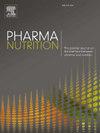The frontier of health: Exploring therapeutic potentials of the microbiome
IF 2.4
Q3 NUTRITION & DIETETICS
引用次数: 0
Abstract
The human body harbors a vast and complex community of microorganisms, primarily bacteria residing in the gut. This gut microbiome significantly impacts our health, influencing digestion, nutrient absorption, immune function, and potentially even mental well-being. An imbalance in this microbial community, termed dysbiosis, has been linked to various human diseases. This realization has opened doors to exciting possibilities in healthcare: microbiome-based therapies that aim to restore gut balance and modulate the immune response. Fecal microbiota transplantation (FMT), involving transplanting stool from a healthy donor, and live probiotic microorganisms are two common microbiome-based therapies. Apart from consuming high-fiber foods such as the Mediterranean diet, dietary approaches for altering the microbiome include adding prebiotics that encourage the development of beneficial microorganisms. However, microbiome-based therapies are not a one-size-fits-all solution. Individual variability in gut microbiome composition across people can affect effectiveness of these therapies. Establishing clear regulations and safety protocols, addressing ethical concerns through open communication, informed consent, and responsible marketing practices, are essential for the responsible use of these therapies. Our study will examine microbiome-based therapy from its premise and mechanism to its current state of development. Additionally, development challenges and potential solutions to inspire further investigations will be discussed.
健康的前沿:探索微生物组的治疗潜力
人体内有一个庞大而复杂的微生物群落,主要是居住在肠道中的细菌。这种肠道微生物群显著影响我们的健康,影响消化、营养吸收、免疫功能,甚至可能影响心理健康。这种微生物群落的失衡被称为生态失调,与各种人类疾病有关。这一认识为医疗保健领域令人兴奋的可能性打开了大门:旨在恢复肠道平衡和调节免疫反应的基于微生物组的疗法。粪便微生物群移植(FMT)是两种常见的基于微生物群的治疗方法,包括移植健康供体的粪便和活的益生菌微生物。除了食用高纤维食物,如地中海饮食,改变微生物群的饮食方法包括添加益生元,促进有益微生物的发展。然而,基于微生物组的疗法并不是一个放之四海而皆准的解决方案。人体内肠道微生物组组成的个体差异会影响这些疗法的有效性。建立明确的法规和安全协议,通过公开沟通、知情同意和负责任的营销实践来解决伦理问题,对于负责任地使用这些疗法至关重要。我们的研究将从微生物组治疗的前提和机制到目前的发展状况进行研究。此外,还将讨论发展挑战和激发进一步调查的潜在解决方案。
本文章由计算机程序翻译,如有差异,请以英文原文为准。
求助全文
约1分钟内获得全文
求助全文
来源期刊

PharmaNutrition
Agricultural and Biological Sciences-Food Science
CiteScore
5.70
自引率
3.10%
发文量
33
审稿时长
12 days
 求助内容:
求助内容: 应助结果提醒方式:
应助结果提醒方式:


